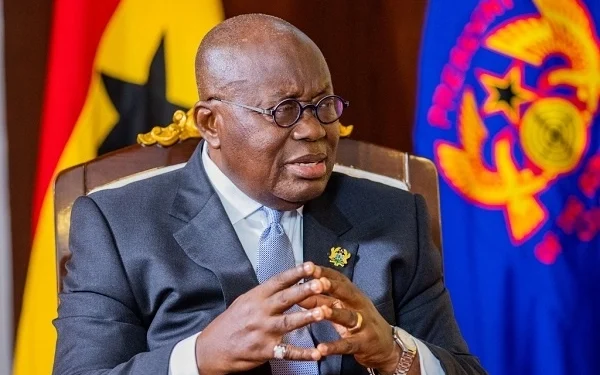Finance Ministry urges Akufo-Addo to defer assent to Anti-LGBTQ+ Bill
The Ministry of Finance has urged President Nana Addo Dankwa Akufo-Addo not to assent to the anti-LGBTQI+ bill.
It will be recalled that Parliament, in early February 2024, approved a custodial sentence of three to five years for any willful promotion, sponsorship, or support of LGBTQ+ activities.
Those caught engaging in LGBTQ+ activities are to face a minimum sentence of six months and a maximum of three years.
The passage of the bill has triggered reactions from some of Ghana’s Development Partners, International Financial Institutions and CSOs in the country.
Adding its voice, the ministry warned that such action could lead to severe repercussions on the country’s financial support from international organisations like the Bretton Woods Institutions.
“The expected US$300 million financing from the First Ghana Resilient Recovery Development Policy Operation (Budget Support) which is currently pending parliamentary approval might not be disbursed by the bank when it is approved by Parliament.
“On-going negotiations on the Second Ghana Resilient Recovery Development Policy Operation (Budget Support) amounting to US$300 million may be suspended. On-going negotiations for US$250 million to support the Ghana Financial Stability Fund may be suspended,” the ministry revealed in a press statement on Monday, March 4, 2024.
Additionally, disbursements for ongoing projects totalling US$2.1 billion will be suspended.
This follows an emergency meeting with the Chief Director and the Director of the Finance Ministry, the Governor and the first deputy Governor of the central bank and the Commissioner General of GRA, to ascertain the immediate impact of the passage of the bill on the implementation of the 2024 budget.
The Ministry emphasised that these potential outcomes could result in a significant loss of financial resources, leading to a financing gap in the 2024 budget.
To address these challenges, the ministry called upon President Akufo-Addo to engage with religious bodies and faith-based organisations to discuss the economic implications of signing the bill.
The ministry also recommended an effective engagement with conservative countries, including the Arab countries and China. Doing this, they believe could help trigger resources to fill in the potential financing gaps to be created.
It also added that “the President may have to defer assenting to the bill until the court rules on the legal issues tabled by key national stakeholders (CSOs and CHRAJ)”.
Below is a statement to that effect.



